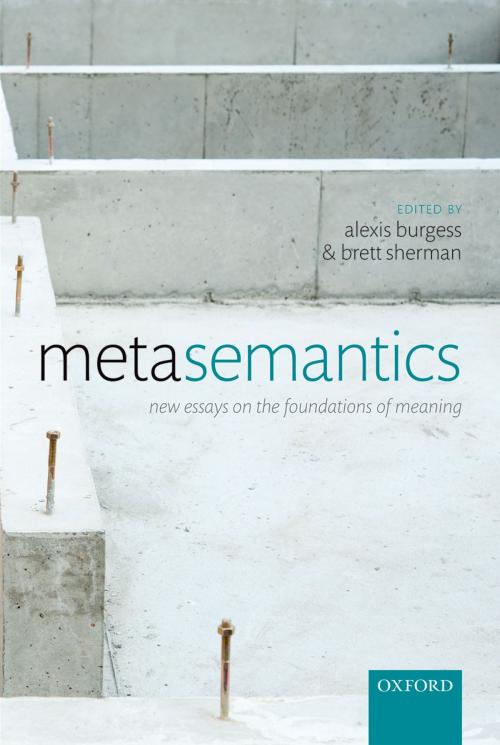Metasemantics
New Essays on the Foundations of Meaning
Nonfiction, Religion & Spirituality, Philosophy, Metaphysics, Reference & Language, Language Arts| Author: | ISBN: | 9780191027192 | |
| Publisher: | OUP Oxford | Publication: | October 30, 2014 |
| Imprint: | OUP Oxford | Language: | English |
| Author: | |
| ISBN: | 9780191027192 |
| Publisher: | OUP Oxford |
| Publication: | October 30, 2014 |
| Imprint: | OUP Oxford |
| Language: | English |
Metasemantics comprises new work on the philosophical foundations of linguistic semantics, by a diverse group of established and emerging experts in the philosophy of language, metaphysics, and the theory of content. The science of semantics aspires to systematically specify the meanings of linguistic expressions in context. The paradigmatic metasemantic question is accordingly: what more basic or fundamental features of the world metaphysically determine these semantic facts? Efforts to answer this question inevitably raise others. Where are the boundaries of semantics? What is the essence of the meaning relation? Which framework should we use for semantic theorizing? What are the intrinsic natures of semantic values? Are the semantic facts metaphysically determinate? What is semantic competence? Metasemantic inquiry has long been recognized as a central part of the philosophy of language, but recent developments in metaphysics and semantics itself now allow us to approach these classic questions with an unprecedented degree of precision. The essays collected here provide promising new perspectives on old problems, pose questions that suggest novel research projects, and taken together, greatly sharpen our understanding of linguistic representation.
Metasemantics comprises new work on the philosophical foundations of linguistic semantics, by a diverse group of established and emerging experts in the philosophy of language, metaphysics, and the theory of content. The science of semantics aspires to systematically specify the meanings of linguistic expressions in context. The paradigmatic metasemantic question is accordingly: what more basic or fundamental features of the world metaphysically determine these semantic facts? Efforts to answer this question inevitably raise others. Where are the boundaries of semantics? What is the essence of the meaning relation? Which framework should we use for semantic theorizing? What are the intrinsic natures of semantic values? Are the semantic facts metaphysically determinate? What is semantic competence? Metasemantic inquiry has long been recognized as a central part of the philosophy of language, but recent developments in metaphysics and semantics itself now allow us to approach these classic questions with an unprecedented degree of precision. The essays collected here provide promising new perspectives on old problems, pose questions that suggest novel research projects, and taken together, greatly sharpen our understanding of linguistic representation.















